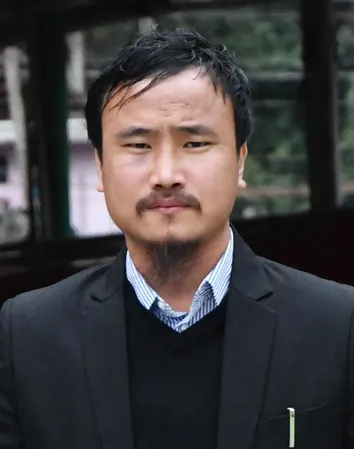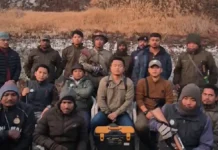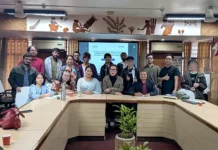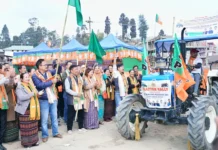ITANAGAR, 4 Sep: A research scholar from Rajiv Gandhi University’s (RGU) mass communication department, Prem Taba, has earned a coveted spot to present his pioneering paper at the 5th International Conference on the Future of Social Sciences and Humanities (FSHCONF).
The prestigious event is slated to take place in Rome, Italy, from 20 to 22 October.
Taba’s paper, titled ‘Bonded Labour and the Puroiks
of Arunachal Pradesh, India: A Historical, Socio-Economic, and Policy Analysis’, secured recognition after undergoing a rigorous double-blind peer review by the conference’s esteemed scientific committee.
The FSHCONF organising team confirmed that Taba’s complete research paper would be featured in the conference proceedings, complete with a digital object identifier (DOI) for cross-reference. Additionally, the paper is set to be published in various internationally recognised journals, including those indexed in the ISI, Scopus, Copernicus, Reuters, and other respected academic publications.
A PhD research scholar at RGU, Taba holds postgraduate and MPhil degrees from the mass communication department. His academic accomplishments are demonstrated through his contributions, which include chapters in esteemed books, research papers, and articles in prestigious journals, as well as active participation in numerous conferences, workshops, and seminars.
In his groundbreaking research paper, Taba delves deep into the historical transformation of bonded labour and the policy challenges confronting the Puroik community – an indigenous tribe residing in Arunachal Pradesh. Notably, the paper highlights the transformative journey from the derogatory term ‘Sulung’ to the official recognition as ‘Puroik’, symbolising a powerful shift towards empowerment and reclamation of identity for this marginalised community.
Taba’s participation in the upcoming FSHCONF conference in Rome is expected to shed further light on the critical issue of bonded labour, providing valuable insights and fostering discussions on policy reforms to address the challenges faced by the Puroik community and others in similar circumstances. His selection to present at the prestigious international gathering underscores the relevance of his research in the global academic community, as it contributes significantly to the discourse surrounding bonded labour and indigenous communities.





